Oxenfree 2: Lost Signals expands with a bigger setting, time tears, and older protagonists
Big in 2022: I'm obsessed with the different ways Oxenfree 2: Lost Signals lets you dive into its story
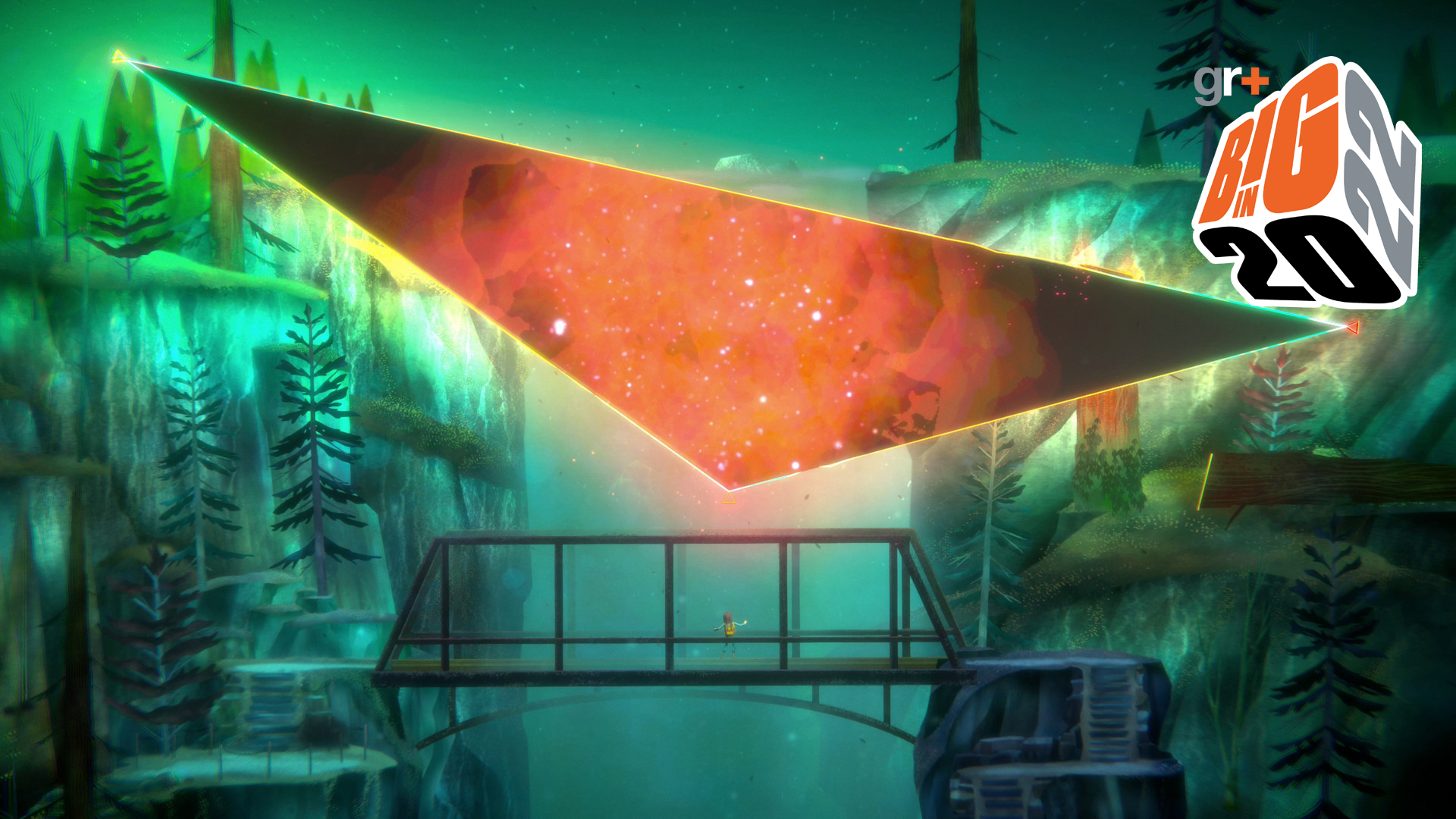
During the demo for Oxenfree 2: Lost signals, I watch as protagonist Riley Poverly walks along a path with an old high school acquaintance, Jacob. The pair talk about a teacher Jacob recalls them both having, and just like the first Oxenfree game, response options pop up above Riley's head as speech bubbles that slowly start to fade away. Night School Studio's' signature dialogue system returns of course, imbuing conversations with a natural, organic flow – I'm already excited to use it to befriend a new and older cast of characters.
Lost Signals sees you play as Riley, an environmental researcher who returns to her hometown of Camena to investigate mysterious radio signals which are causing strange disturbances to electronic equipment. Before long, Riley finds herself caught up in supernatural occurrences and the dangerous plot of a strange cult known as Parentage. With a shift away from the teenage protagonists of the first game, the team at Night School Studio saw an opportunity to explore a different kind of coming-of-age story.
"For us, it was the opportunity to tell a new sort of coming-of-age story, but in a different point in the actual age of the characters in the game," says lead writer and studio co-founder Adam Hines. "So whereas in the first game, it was high schoolers who were about to leave school and about to become adults, and have the anxiety and the anxiousness, and the concerns about what that is, and what that would mean. Now these characters are much older, but they also have their own life changes that they're going through, and being able to filter that through this very strange frightening supernatural world and rule sets, and this much bigger looming problem that they have to solve. It was just a great opportunity just to tell another similar feeling story in tone, but touch on much different themes."
Walkie-Talkie
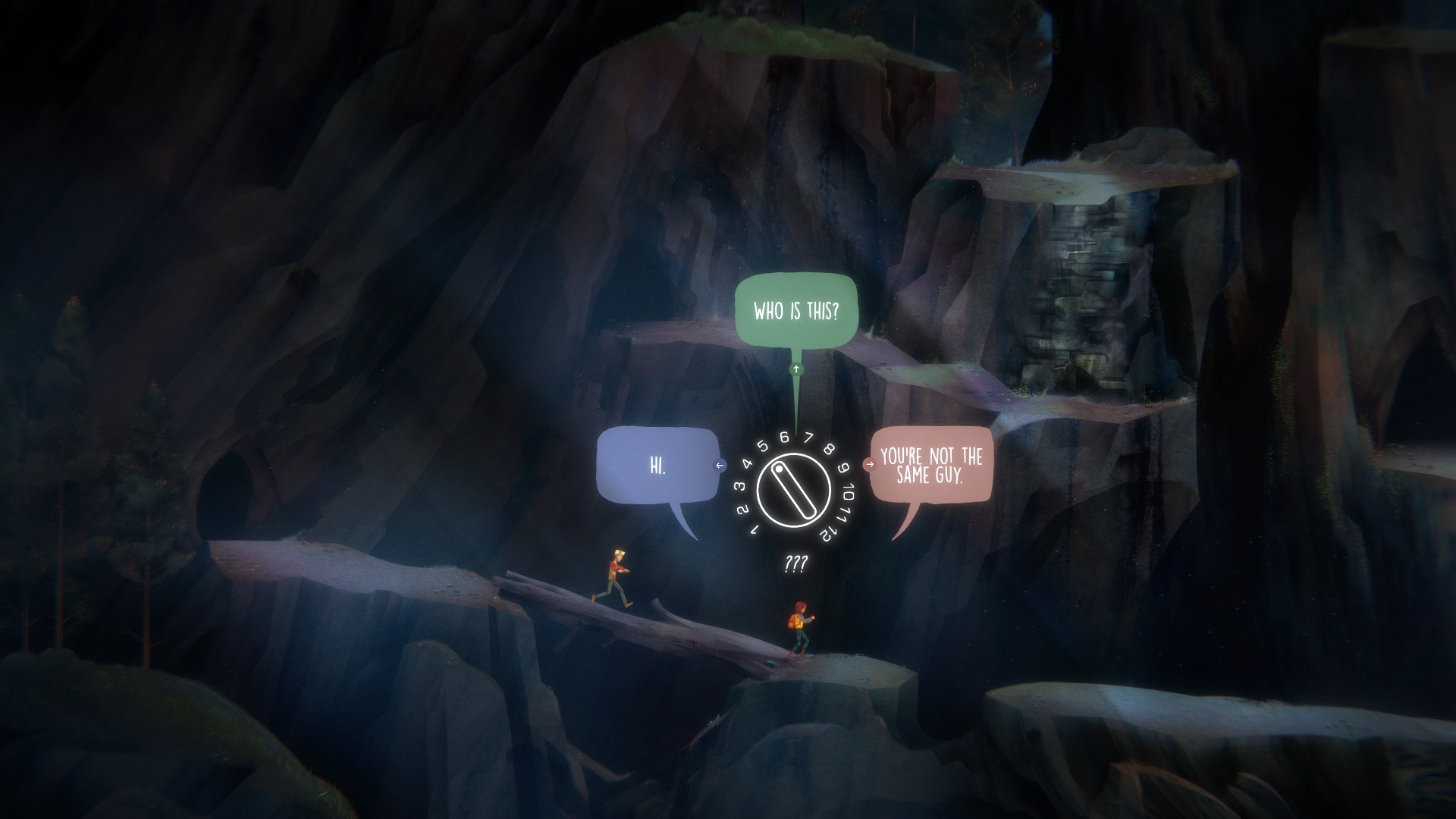
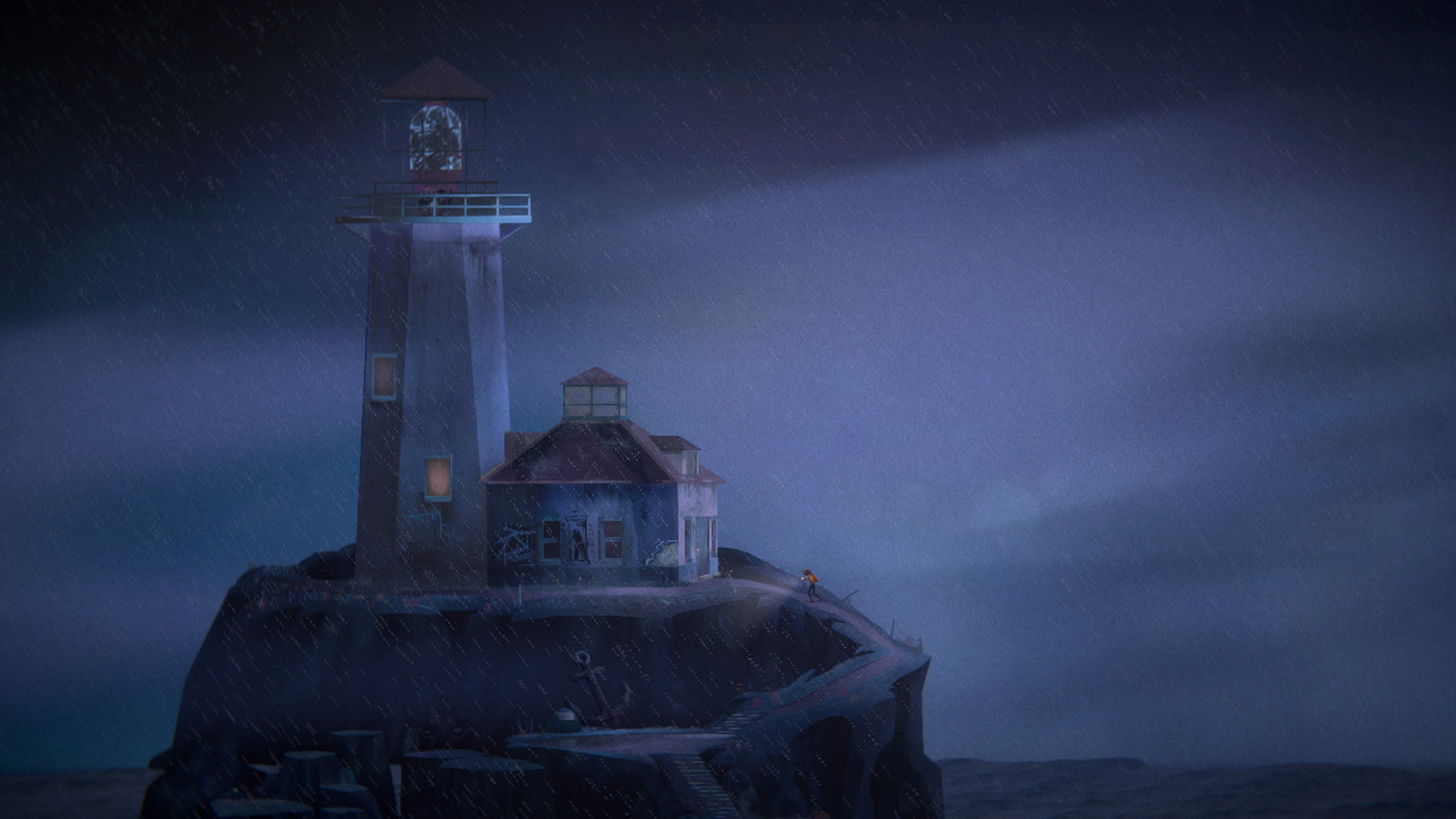
Game Oxenfree 2: Lost Signals
Developer Night School Studio
Publisher MWM Interactive
Platforms PC, PS4, PS5, Xbox One, Xbox Series X
Release 2022
Despite the move toward older characters, Oxenfree 2: Lost Signals retains the signature look and feel that helped to define the 2016 indie hit. From its painterly art style, to the spooky atmosphere, and the way the conversations play out around you, it's easy to be drawn back in for a new adventure. Looking at the map of Camena, the larger sense of scale in Lost Signals strikes me right away. With a more expansive setting to explore in comparison to Oxenfree's Edwards Island, Night School is giving players more agency in how they can approach each of the game's scenarios. As you navigate through areas, for example, you'll be presented with different ways to traverse through the landscape, with riskier paths or longer and safer routes available.
Not unlike the first game, choices are often tied to your dialogue responses, too. Throughout your journey in Camena, your conversations with Jacob will shape how he views you and your history at high school, but unlike the original Oxenfree, you will now be able to speak to a much wider cast of characters than your nearby companion. After making their way through a cave, Riley and Jacob come out into an area densely covered in fog, and it's here that one of the most exciting new features in Lost Signals comes into play.
Riley receives a call on her walkie talkie – a new tool you'll be able to use to talk to other residents of Camena. From mysterious strangers to locals in need of some assistance, the walkie-talkie adds to the sense of scale and depth by bringing in both side quests and an additional layer of choice. When you receive a call, you can decide if you want to respond, potentially help out, or simply ignore it all together.
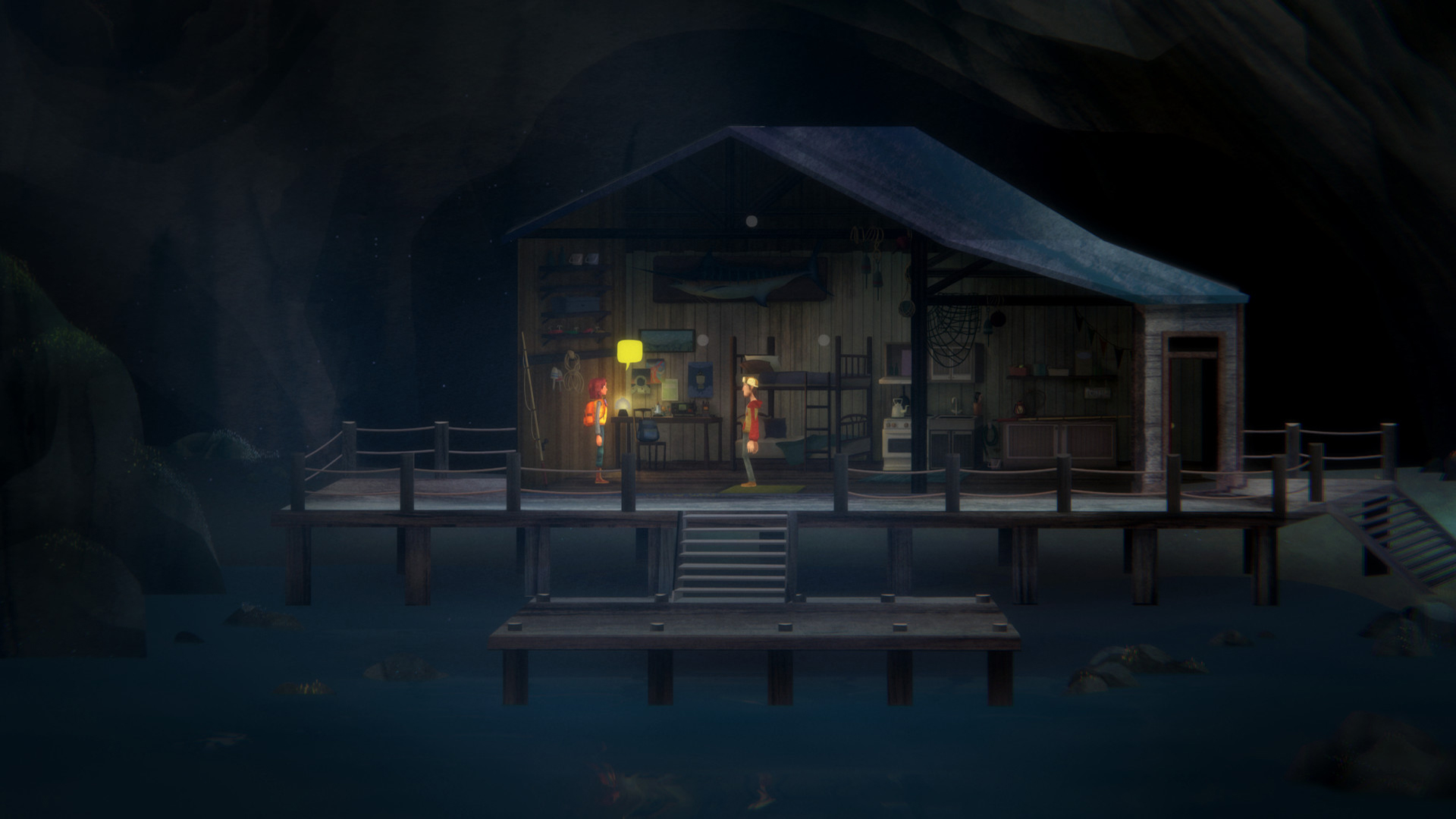
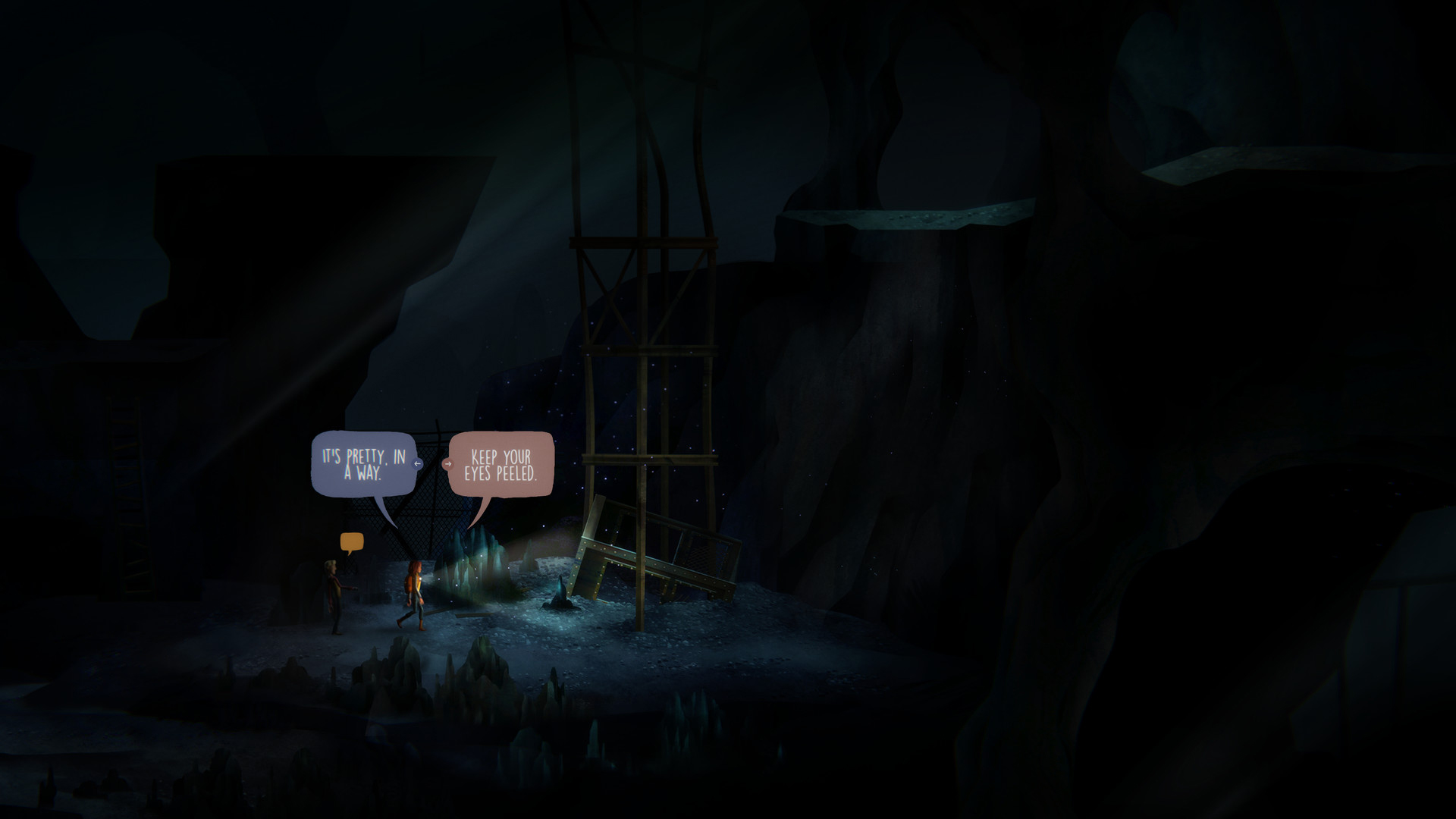
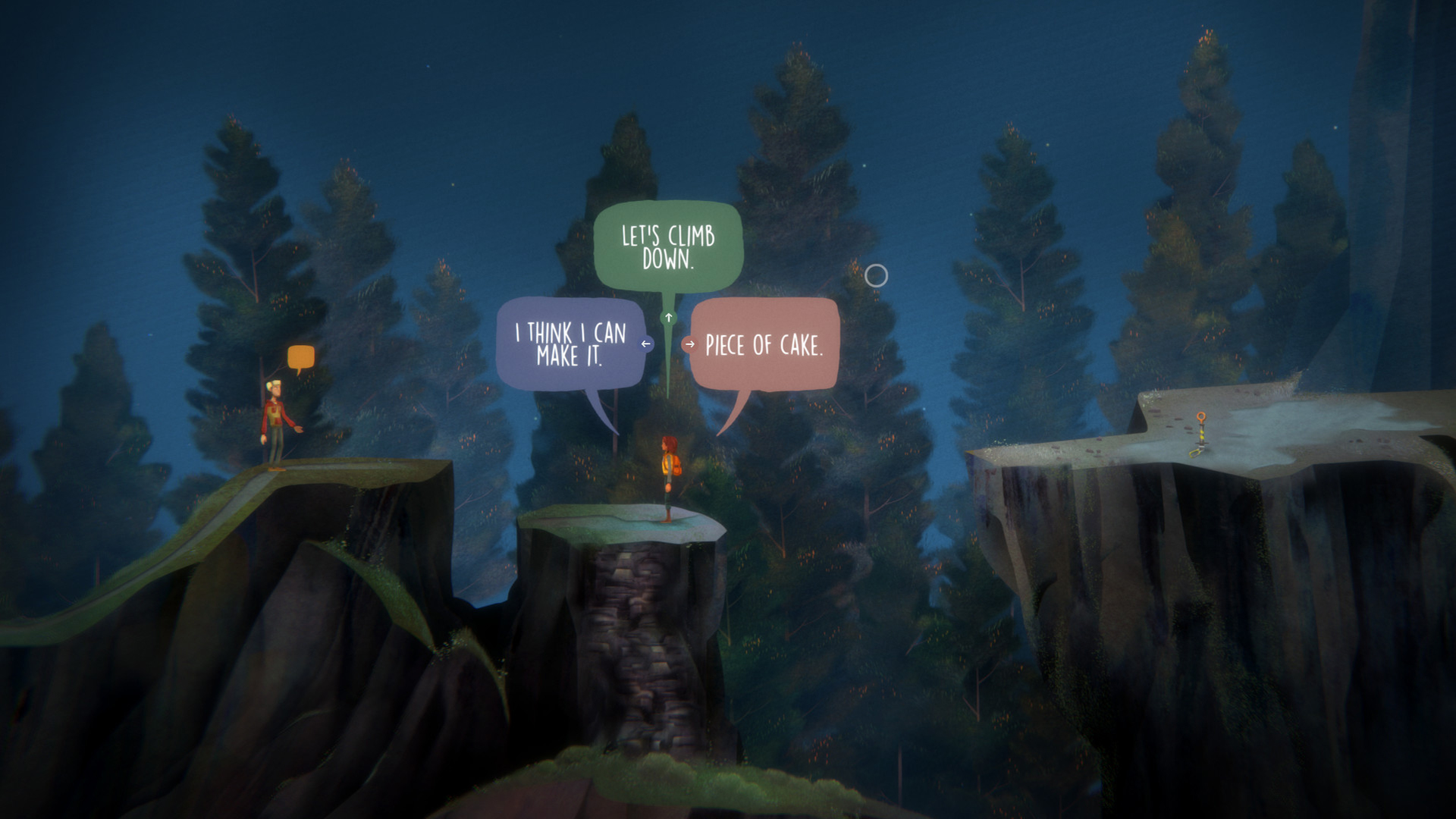
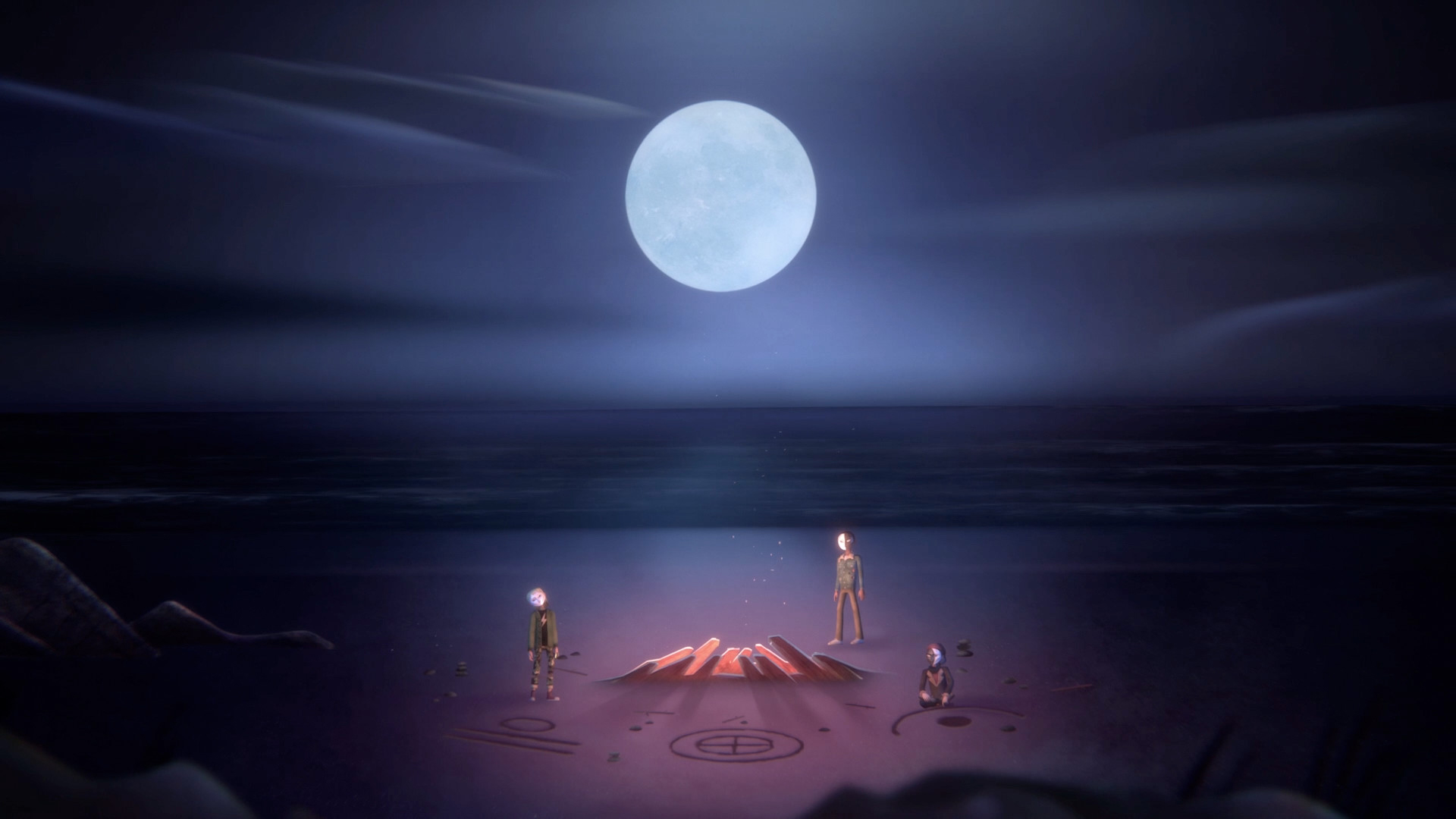
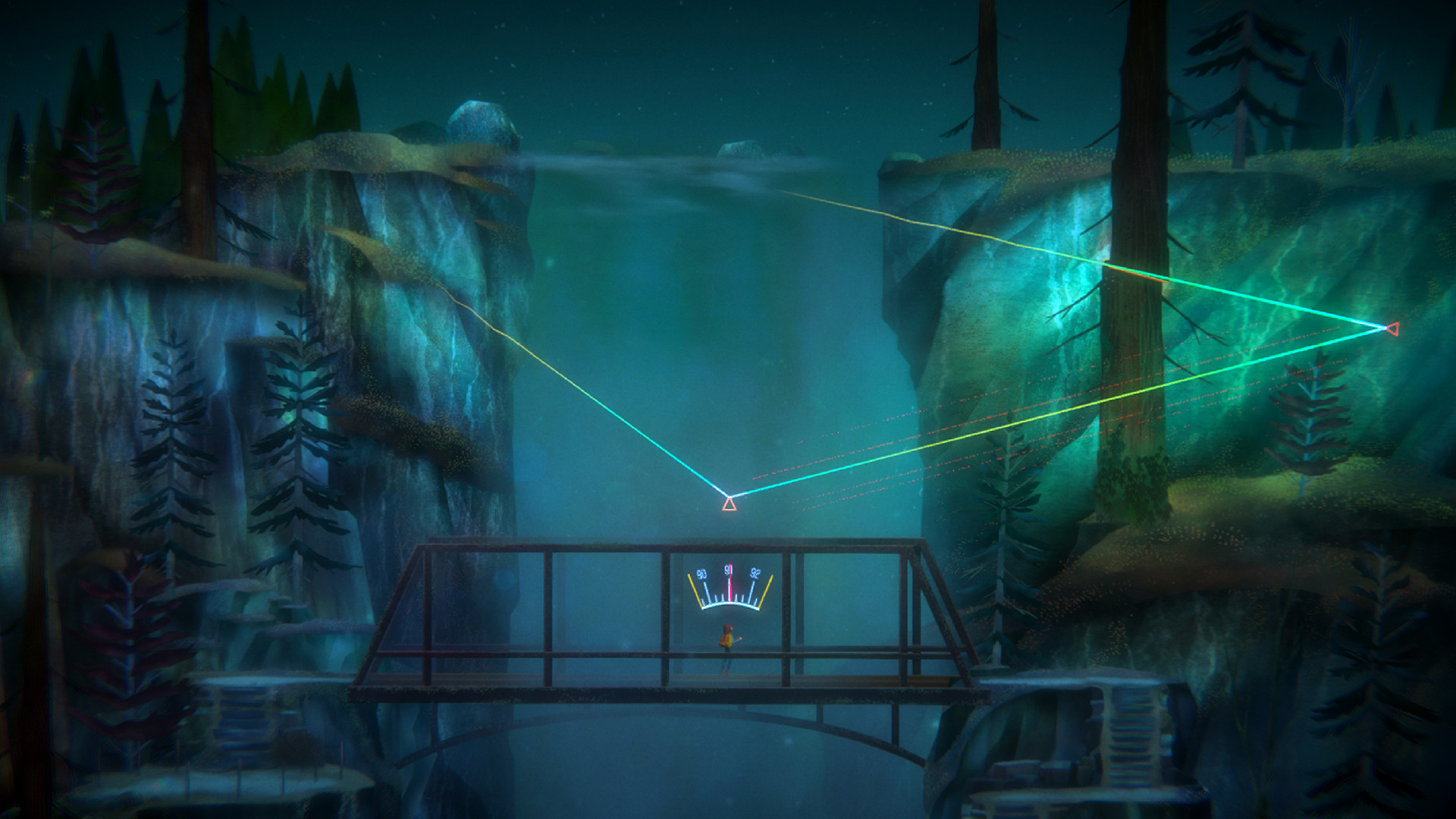
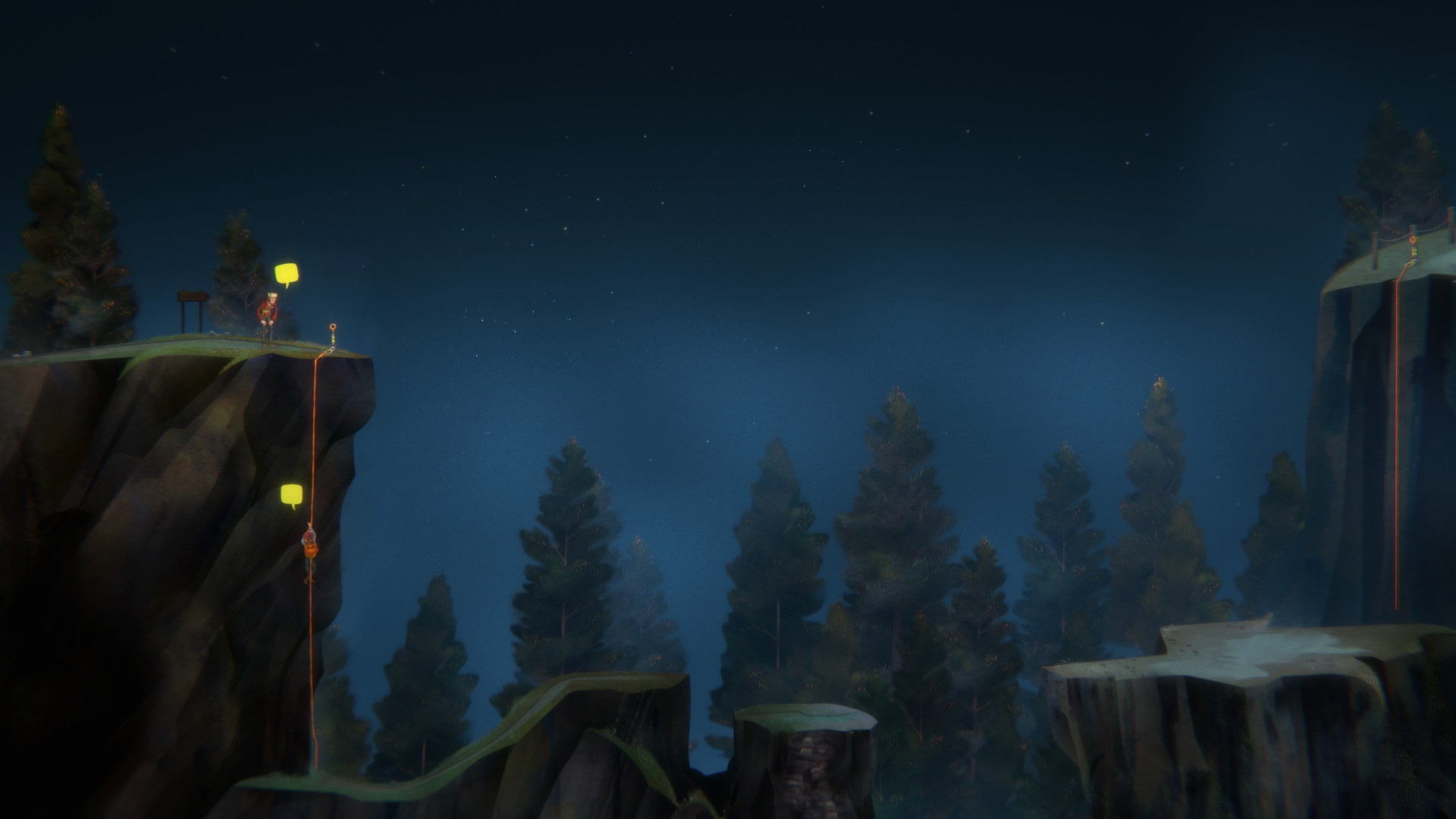
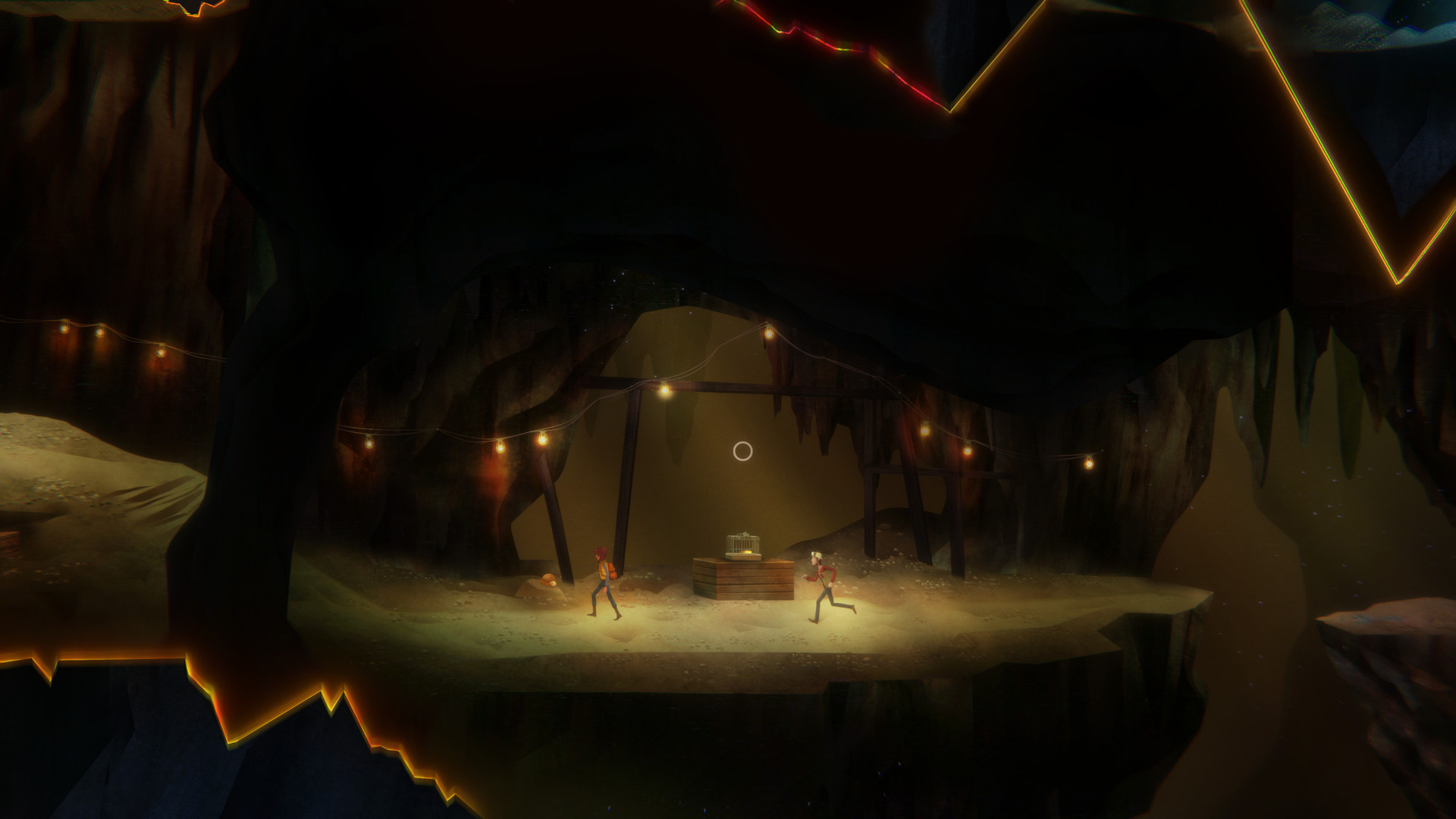

"The walkie really opened things up," explains director and studio co-founder Sean Krankel. "Because, whereas in the first game, all of your communication is so focused on who's just with you at that exact moment, the walkie allows us the opportunity to kind of asynchronously communicate with people in different places, engage with them by reaching out to them when they're not waiting for it, or have them interrupt certain specific moments. And so, if you think about all of the kind of complexities of how the dialogue system already works, now layering on top of that a new system of having numerous friends and frenemies that you're kind of meeting over the course of the game with the walkie is really helpful."
Sign up to the GamesRadar+ Newsletter
Weekly digests, tales from the communities you love, and more
"The way we've looked at it is that each of these new characters that you meet have their own storylines that are very complete, and you can either totally miss them or you can partake in them, or you can leave them kind of dangling threads halfway through," Krankel continues. "But really, it is letting us have a much broader cast. So some of these folks you'll actually meet in person, other ones you'll only ever know through the walkie in a kind of mysterious way. Even though it seems pretty simple on the surface, it pretty dramatically changes how people can interact with the story."
Time tears
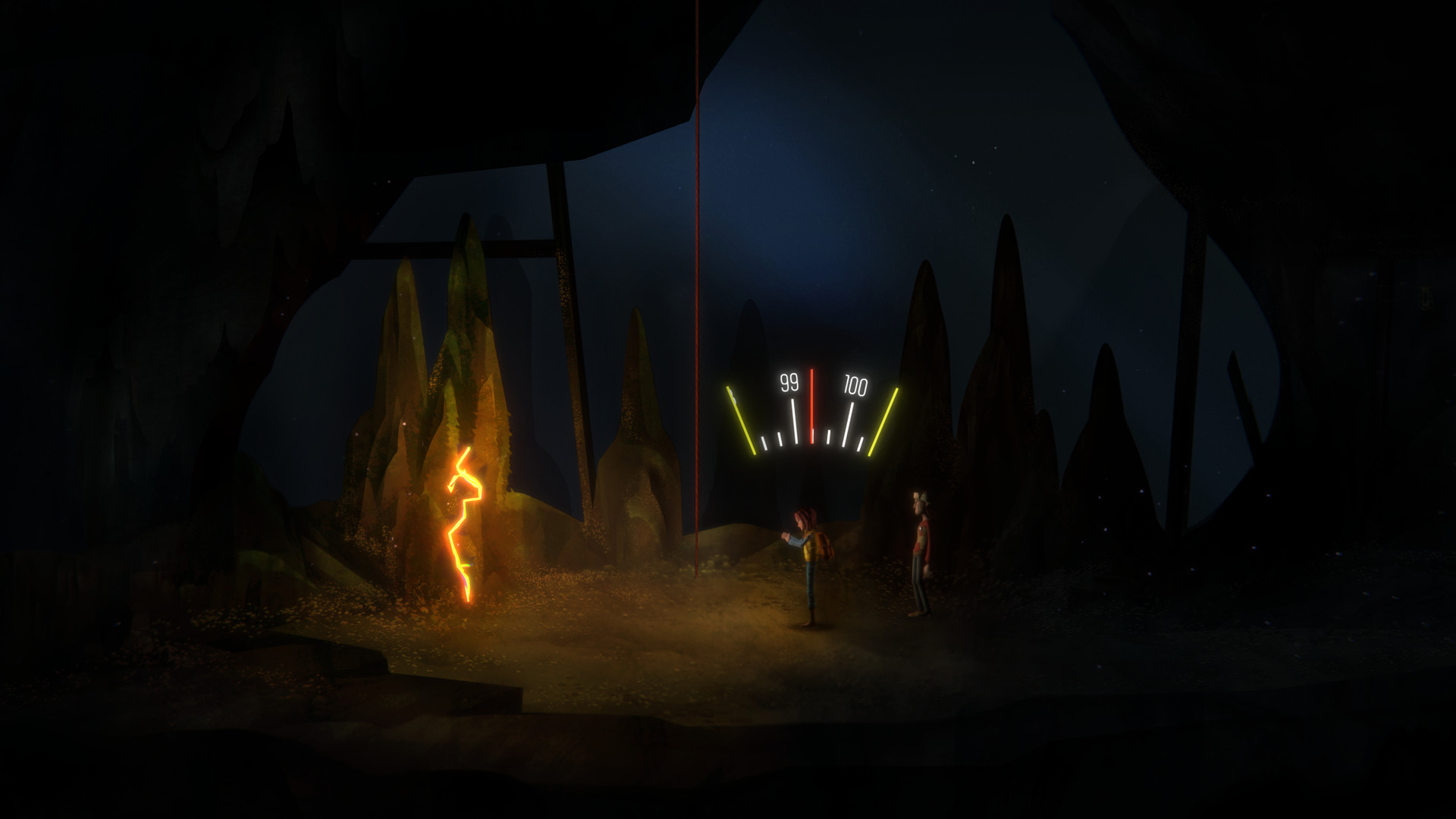
"I think we love this world and would like to continue even beyond this one making more games in this space."
Sean Krankel
The choices you make (or don't, as may be the case) on your walkie talkie can also have wider consequences on the story. "All of your choices slowly add up to a couple big different types of endings that you could have," Hines explains. "But the micro and macro choices that you made along the way also affect your ability to make certain choices at the end as well. So if you have befriended certain characters, helped out certain Walkie-Talkie quests, found everything in the game, or just beelined to the places that you know you need to go, all of that is kind of taken into account in hopefully a very naturalistic way. So that you feel like the ending that you get at the end is the one thing that you both earned and you kind of had Riley deserve."
With a more expansive setting and more ways to interact with the world and its inhabitants, new supernatural elements will also open up Camena in strange and unusual ways. As Krankel confirms, Oxenfree 2: Lost Signals is "loosely tied" to the first game, with the portals making a return during Riley's journey to investigate the mysterious radio signals. The spooky portals in the first game could transport you to another location entirely and act as a means for the supernatural beings to communicate with the living. Now, these portals appear to be in Camena, too, but this time around, Riley will also have to contend with new paranormal occurrences known as time tears.
Time tears allow you to explore a location in another timeline and see it as it was in the past. The Supernatural side of Oxenfree 2: Lost Signals will open up the setting in interesting in intriguing and mysterious ways, and I can hardly wait to discover everything that awaits us as we venture through Camena. From a storytelling perspective, as Krankel expresses, the ghostly events and strange goings can also act as a way to explore the characters stories and problems in unique ways, which is one of reasons the team at Night School Studio couldn't wait to return to Oxenfree's world to create another experience with new protagonists.
"We realized that all of the supernatural events of an Oxenfree game are almost like holding up a mirror to the characters that are living through those problems," Krankel says. "And either through ghostly events, time loops, etcetera, we really get to dive into the singular personal challenges of them. And so for us, it really was less about like, 'Oh, we have to continue any particular characters story', and more about like, 'Oh, let's introduce new stories and find new ways to have people deal with these issues against a really kind of scary backdrop. I think we love this world and would like to continue even beyond this one making more games in this space."
Oxenfree 2: Lost Signals is set to release in 2022 on PC (Steam), PS4, PS5, and Nintendo Switch.

GamesRadar+ is exploring the biggest games of 2022 with exclusive interviews, hands-on impressions, and in-depth editorials. For more, be sure to visit the Big in 2022 coverage hub.

I started out writing for the games section of a student-run website as an undergrad, and continued to write about games in my free time during retail and temp jobs for a number of years. Eventually, I earned an MA in magazine journalism at Cardiff University, and soon after got my first official role in the industry as a content editor for Stuff magazine. After writing about all things tech and games-related, I then did a brief stint as a freelancer before I landed my role as a staff writer here at GamesRadar+. Now I get to write features, previews, and reviews, and when I'm not doing that, you can usually find me lost in any one of the Dragon Age or Mass Effect games, tucking into another delightful indie, or drinking far too much tea for my own good.


